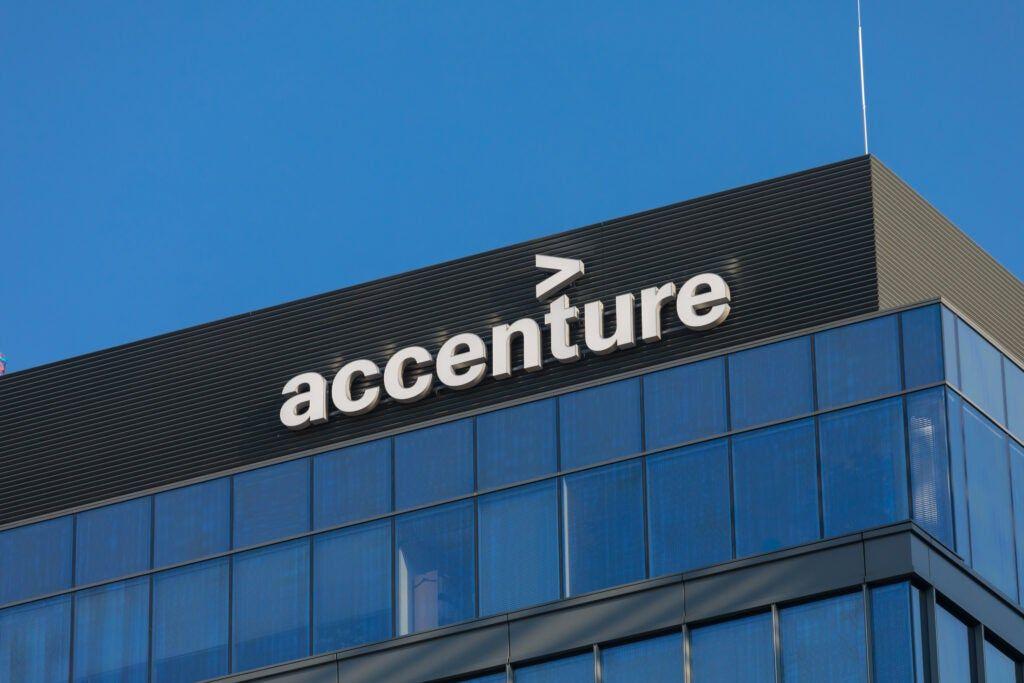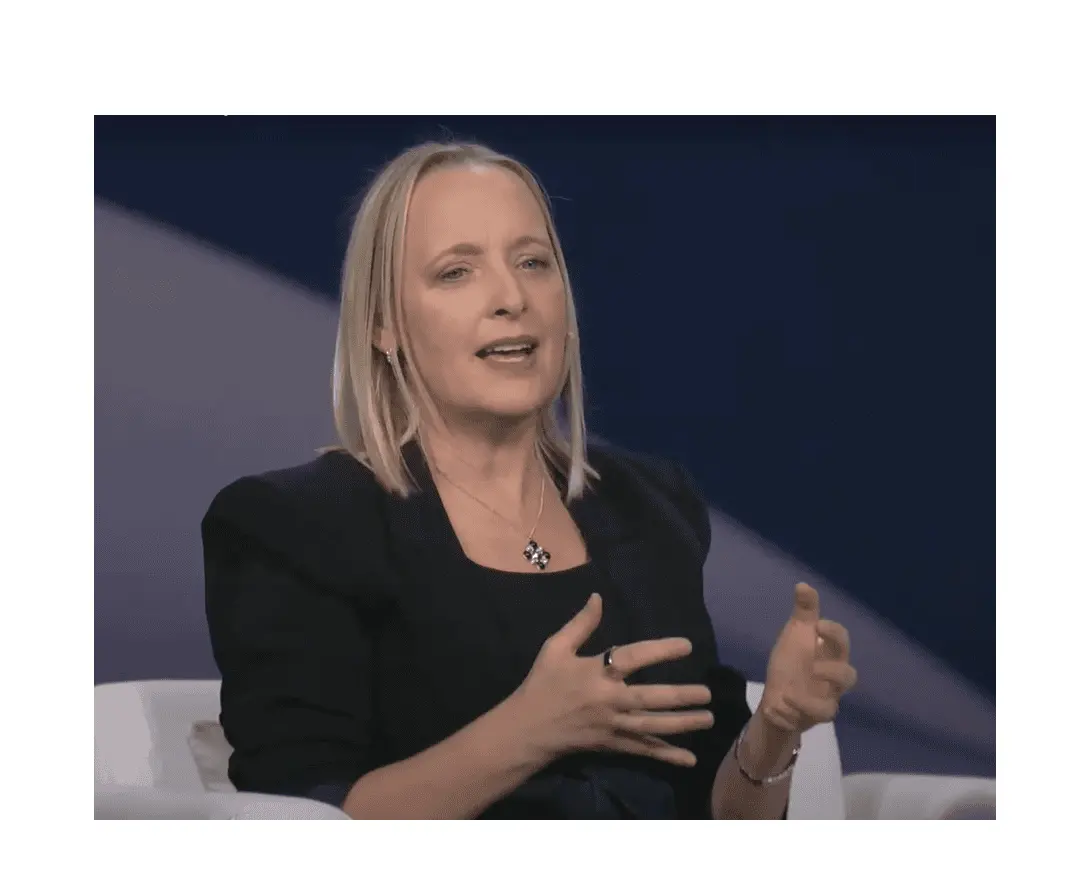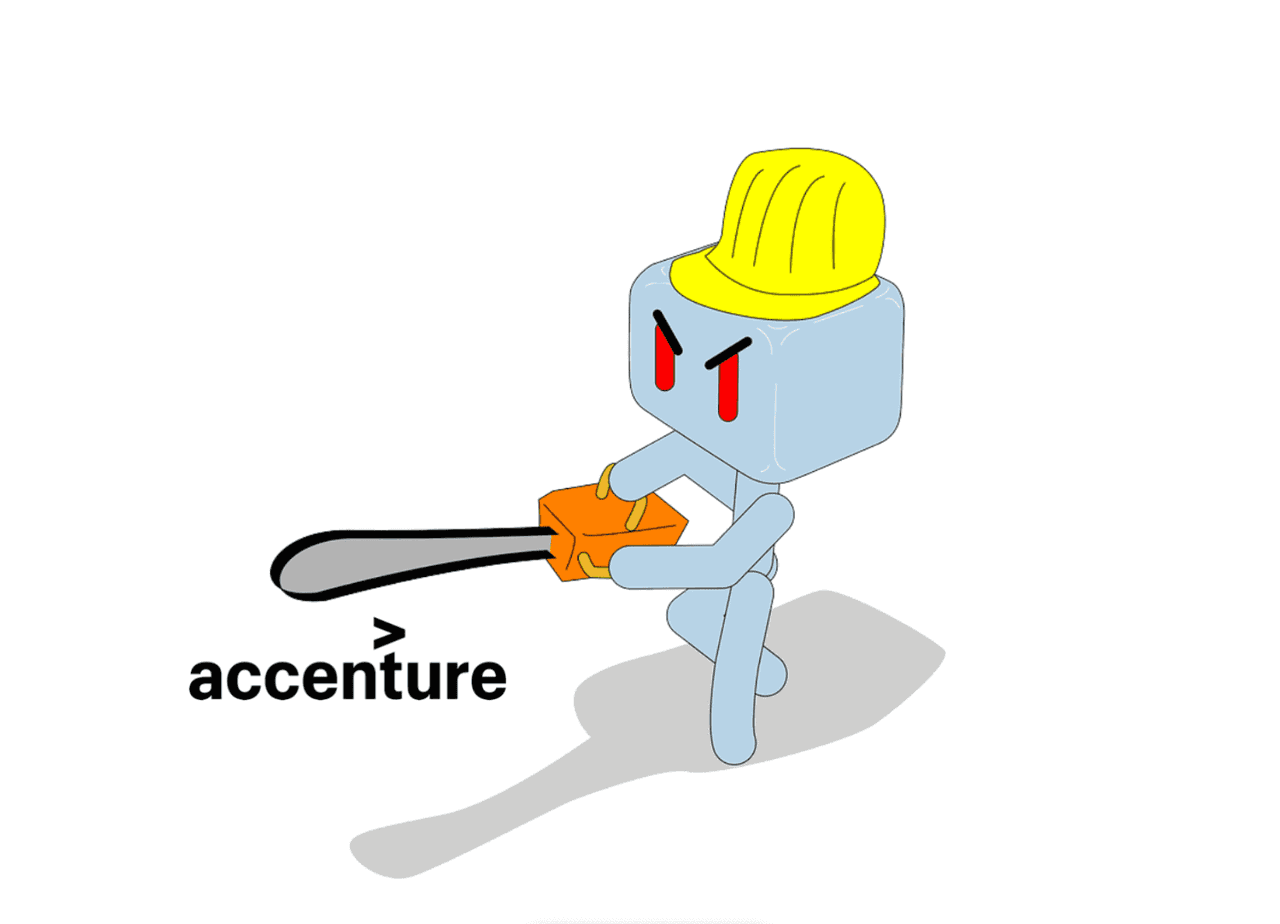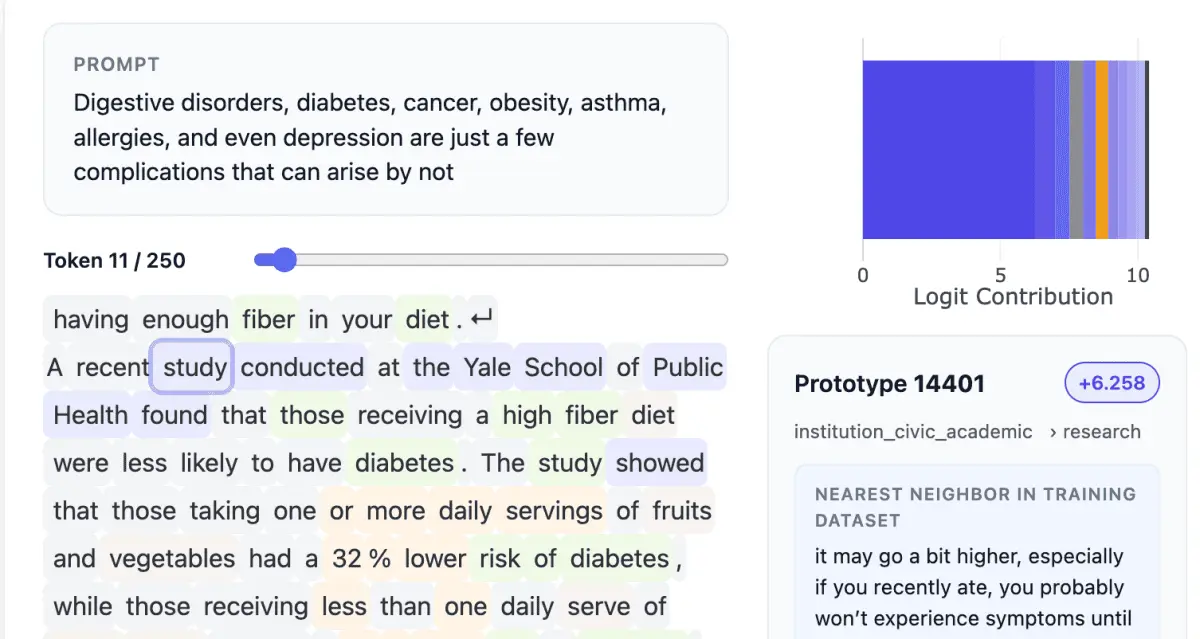Accenture CEO Julie Sweet Emphasizes AI-Driven Reinvention for Fortune 500 Survival
2 Sources
2 Sources
[1]
Accenture CEO weighs in on why so many AI projects have failed with 3 red flags to watch out for
Throughout her life, Accenture CEO Julie Sweet hasn't been afraid to throw out the playbook, and, in the age of AI, both she and her Fortune 500 clients are in the middle of another reinvention. Going into her freshman year at Claremont McKenna College, Sweet, who grew up in a middle class Tustin, Calif. family, decided to study international relations and learn Chinese. Then, after a 17-year law career which saw her become the first woman partner at her firm, she took a leap to Accenture and tech consulting where she would eventually earn the top job -- even though she knew nothing about technology at first. As the rapid development of AI has upended the business world and has touched everything from the customer to the front office, Sweet, Accenture's first woman CEO and chair of the board, says companies also have to reinvent themselves from top to bottom. "In order to capture the opportunity with AI, you really have to be willing to rewire your company," Sweet told Fortune Editor-in-Chief Alyson Shontell on the inaugural episode of the Fortune 500 Titans and Disruptors of Industry podcast. "Many times, when clients are saying, we're not getting a lot out of AI, it's because they're trying to apply it to how they operate today." Rewiring, as Sweet describes it, means abandoning the mindset of business as usual. Accenture, itself, has already committed $3 billion to building out its data and AI practice, and has pledged to add 80,000 AI-focused employees to its already robust 770,000-plus workforce. The firm has completed more than 2,000 generative AI projects in this fiscal year alone, and Sweet said Accenture's clients continue to come to them for their industry and technical knowledge, but also their data and technology. Sweet said the AI revolution needs to be led by executives, who are on the pulse of AI. They also need to not be afraid to change course, as Sweet, herself, has done at Accenture by rethinking her own initiatives from years ago. "The real promise of it is to use it at the core of your business and be able to change your trajectory."
[2]
Accenture CEO Julie Sweet Says Fortune 500 Survival Hinges On 'Reinvention' As AI Revolution Forces CEOs To Tie Every Investment To The Bottom Line - Accenture (NYSE:ACN)
Accenture Plc ACN Chief Executive Julie Sweet says companies that fail to reinvent their operations around artificial intelligence risk losing their place at the top of the corporate world. AI Must Deliver Real Business Value, Not Just Experiments In the debut episode on Thursday of Fortune 500: Titans and Disruptors of Industry, Sweet told Fortune's Editor-in-Chief Alyson Shontell that AI is no longer about experiments, it must directly link to performance. "As a CEO, you should not greenlight something that doesn't have a direct tie to your PnL or something measurable that you already measure," she said, pointing to Accenture's use of generative AI to cut idea-to-market timelines by 90%. Reinvention, Not Incremental Change, Will Define Fortune 500 Survival Sweet emphasized humility as an essential leadership trait in the AI era. "Humility is what allows you to be a learner. It helps you build great teams, and it allows you to see what you've done and how you led the company," she said, noting even successful strategies from six years ago are being reworked. She pushed back against predictions of widespread Fortune 500 collapse, including venture capitalist Vinod Khosla's warning of mass corporate demise in the 2030s. "CEOs today are focused on making AI the biggest growth opportunity and not the thing that causes their demise," she said. Her prescription for survival: "One word, reinvention. This isn't about using AI on top of what you do today. If you're not significantly changing the way you operate, then you're not reinventing, and you're not going to capture the value." See Also: Marc Benioff Says AI Now Handles Up To 50% Of Work At Salesforce -- Could An AI Agent Eventually Take Over His Job Tech Leaders Divided on AI's Impact on Jobs Earlier this month, Microsoft Corp. MSFT co-founder Bill Gates warned that artificial intelligence was advancing at a pace that "surprised" even him, raising uncertainty about when it might replace human workers across industries. Microsoft CEO Satya Nadella argued that AI would redefine cognitive labor without rendering humans irrelevant. Nvidia Corp. NVDA CEO Jensen Huang cautioned that employees who failed to embrace AI risked obsolescence. Goldman Sachs Group Inc. GS estimated the technology could affect 300 million full-time jobs worldwide, though analysts suggested it would drive mass redefinition rather than outright replacement. Read Next: AI Will Disrupt 25% Of US Jobs By 2030 -- And The Fed Can't Save Them, Economist Warns Disclaimer: This content was partially produced with the help of AI tools and was reviewed and published by Benzinga editors. Photo courtesy: Shutterstock ACNAccenture PLC$259.901.46%Stock Score Locked: Want to See it? Benzinga Rankings give you vital metrics on any stock - anytime. Reveal Full ScoreEdge RankingsMomentum12.90Growth27.26Quality15.48Value19.78Price TrendShortMediumLongOverviewGSThe Goldman Sachs Group Inc$745.26-0.79%MSFTMicrosoft Corp$506.70-0.58%NVDANVIDIA Corp$173.67-3.61%Market News and Data brought to you by Benzinga APIs
Share
Share
Copy Link
Julie Sweet, CEO of Accenture, discusses the importance of AI integration in business operations and warns against failed AI projects. She emphasizes the need for companies to reinvent themselves to fully leverage AI's potential.
Accenture's AI-Driven Transformation
Julie Sweet, CEO of Accenture, is leading the charge in the AI revolution, emphasizing the need for Fortune 500 companies to reinvent themselves to survive and thrive in the age of artificial intelligence. Sweet, who has a history of adapting to new challenges, from studying Chinese in college to transitioning from law to tech consulting, is now guiding Accenture and its clients through a significant technological shift
1
.
Source: Fortune
The Imperative for AI-Driven Reinvention
Sweet argues that the key to success in the AI era is not merely applying AI to existing processes but fundamentally rewiring company operations. "In order to capture the opportunity with AI, you really have to be willing to rewire your company," she stated in a recent interview
1
. This approach requires abandoning the mindset of business as usual and embracing comprehensive change.Accenture's AI Investment and Strategy
Demonstrating its commitment to AI, Accenture has invested $3 billion in building out its data and AI practice and plans to add 80,000 AI-focused employees to its workforce. The company has already completed over 2,000 generative AI projects in the current fiscal year, showcasing its rapid adoption of AI technologies
1
.Linking AI to Business Performance
Sweet emphasizes that AI initiatives must directly contribute to a company's bottom line. "As a CEO, you should not greenlight something that doesn't have a direct tie to your PnL or something measurable that you already measure," she advises
2
. Accenture itself has leveraged generative AI to reduce idea-to-market timelines by an impressive 90%.
Source: Benzinga
Leadership in the AI Era
Sweet highlights humility as a crucial leadership trait in navigating the AI landscape. She notes that even successful strategies from just a few years ago are being reworked to adapt to the rapidly changing technological environment. This approach allows leaders to continually learn, build strong teams, and reassess their company's direction
2
.Related Stories
The Future of Fortune 500 Companies
While some predict widespread disruption among Fortune 500 companies due to AI, Sweet remains optimistic. She believes that CEOs are focused on making AI a growth opportunity rather than a threat to their existence. However, she stresses that survival depends on significant operational changes and true reinvention, not just superficial AI adoption
2
.AI's Impact on the Workforce
The rapid advancement of AI has sparked debates about its impact on jobs. While some tech leaders warn of potential job displacement, others see AI as a tool for redefining work rather than replacing humans entirely. Goldman Sachs estimates that AI could affect 300 million full-time jobs worldwide, though this may lead to job redefinition rather than outright replacement
2
.References
Summarized by
Navi
[1]
Related Stories
Accenture's $3B AI Bet Pays Off: CEO Julie Sweet Reveals Insights on Enterprise AI Adoption
26 Sept 2025•Business and Economy

Accenture Faces Federal Revenue Uncertainty Amid Trump Administration's Cost-Cutting, While AI Business Thrives
21 Mar 2025•Business and Economy

Accenture's AI-Driven Restructuring: 11,000 Jobs Cut as Company Prioritizes AI Skills
26 Sept 2025•Business and Economy

Recent Highlights
1
Google Gemini 3.1 Pro doubles reasoning score, beats rivals in key AI benchmarks
Technology

2
Pentagon Summons Anthropic CEO as $200M Contract Faces Supply Chain Risk Over AI Restrictions
Policy and Regulation

3
Canada Summons OpenAI Executives After ChatGPT User Became Mass Shooting Suspect
Policy and Regulation





